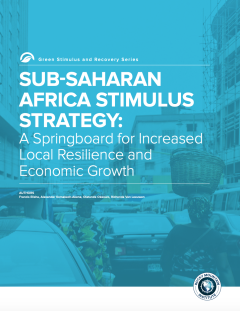
Energy challenges are one of the common features of current disruptions in sub-Saharan African countries in the wake of the COVID-19 pandemic. There is little doubt that electricity supply for health facilities and essential services has long been overlooked. Moreover, the recent collapse in oil prices has had a destabilising effect on national budgets for exporters, while trade balances are worsening for fuel importers. By addressing this dependence in the recovery phase, African countries can strengthen their resilience to future external or extreme shocks.
There is a unique opportunity to build back stronger during post-pandemic recovery efforts. Focusing stimulus packages on energy-related interventions that can help sub-Saharan African countries move quickly to become carbon-neutral economies can generate positive spillover effects into other sectors.
To be effective, these interventions would:
- Adopt an inclusive approach and ensure the most vulnerable are not left behind;
- Prioritise a short implementation timeframe (two to three years maximum) enabling swift recovery, along with scalability as a key parameter;
- Create long-term as well as short-term jobs and generate environmental co-benefits;
- Leverage favorable economics of clean technologies to help decarbonise the economy;
- Unlock economic potential in other sectors; and
- Increase resilience to external shocks and reduce dependence on imports.
